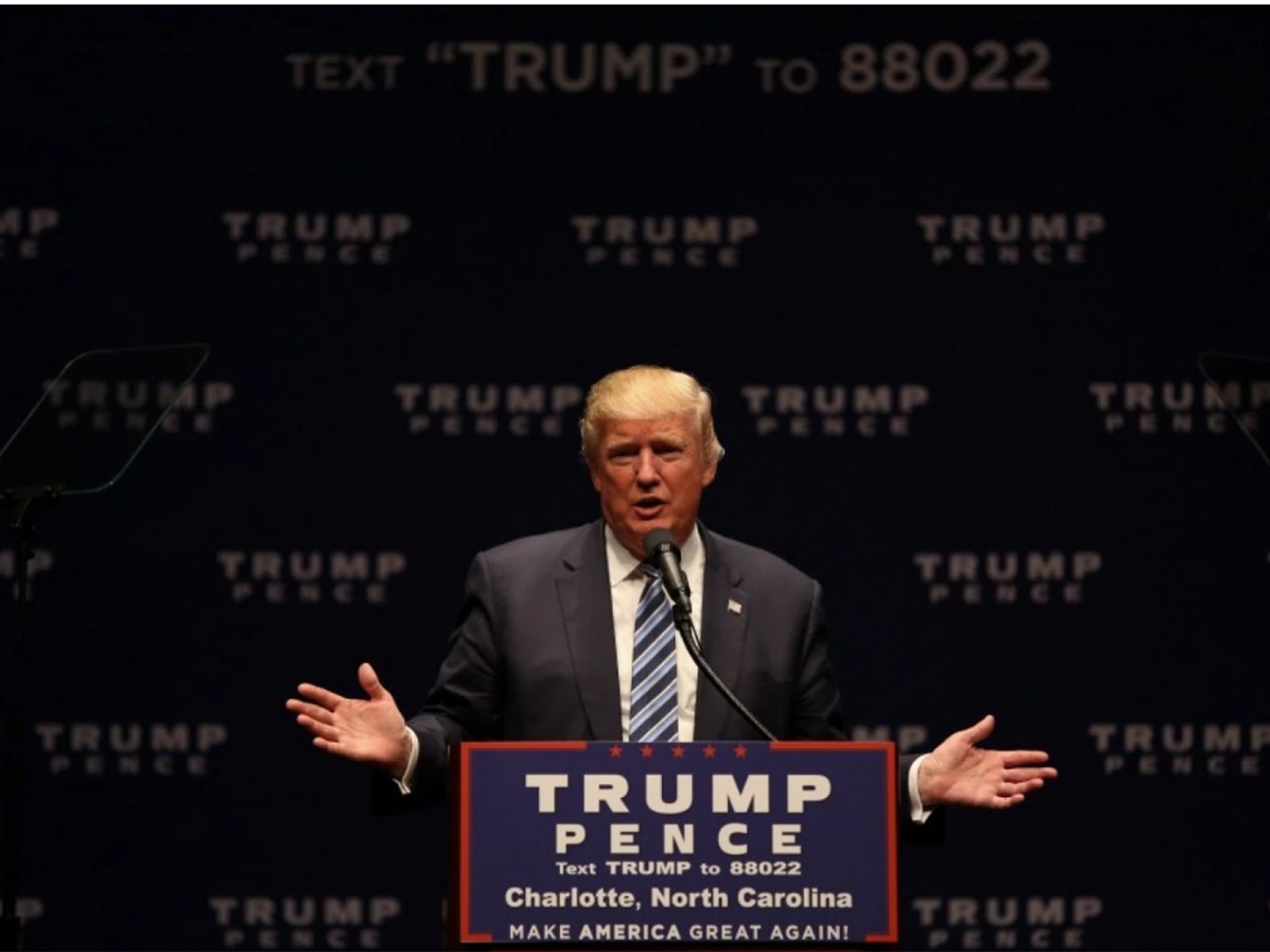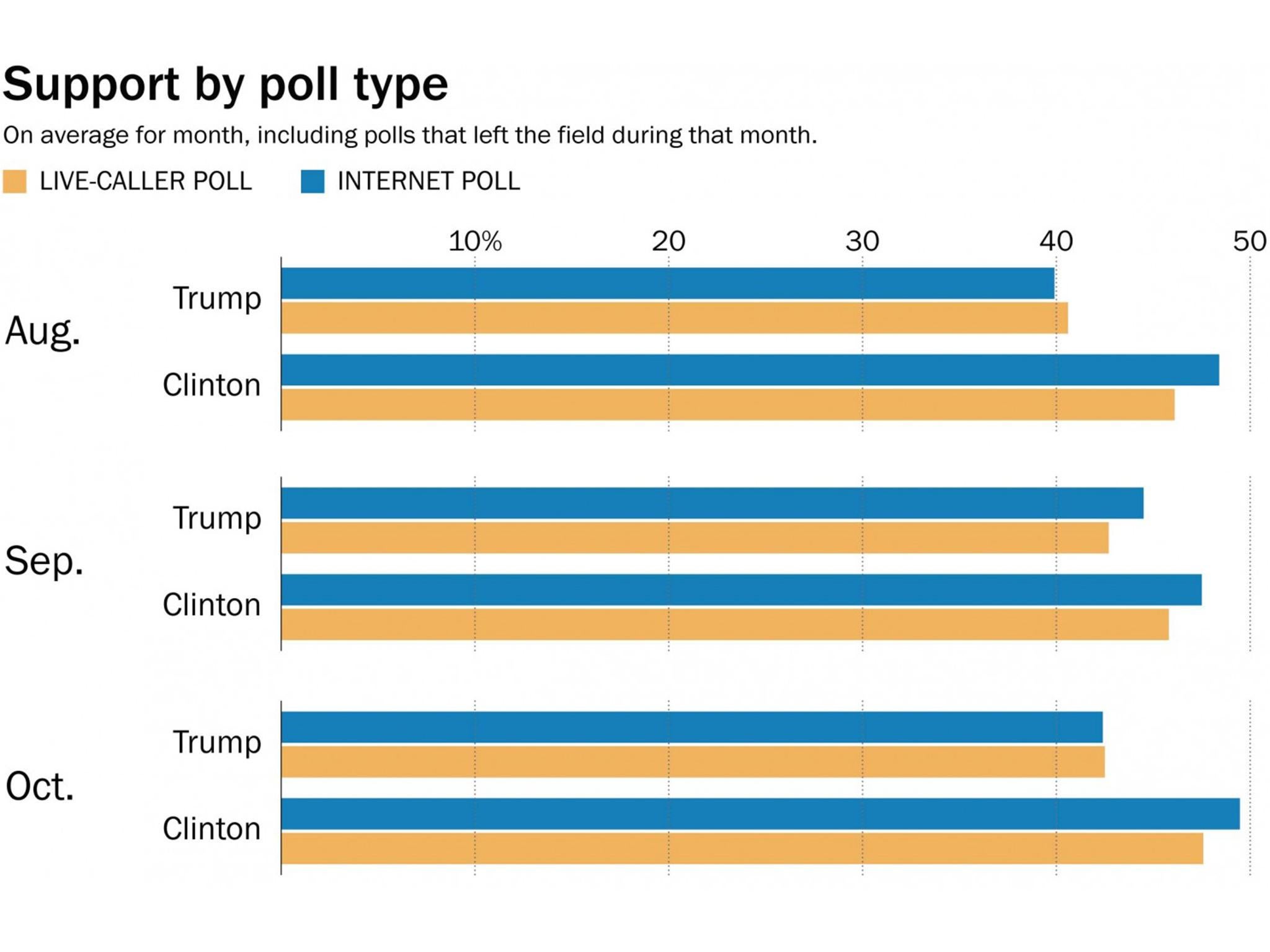Could pollsters be missing hidden Donald Trump voters?
For months, Trump has argued that the pollsters are missing an undercurrent of support in his base. Is he right?

When Donald Trump is down in the polls, it's not Donald Trump's fault, it's the polls'. Donald Trump trails when he trails because the pollsters are missing something, just like they missed something in Brexit, which they really didn't. Donald Trump is never failing; it's the polls that are failing America. Donald Trump is never losing; it's the pollsters who are losers.
Is he right?
For months, Trump has argued that the pollsters are missing an undercurrent of support in his base. (Trump argues that this is intentional; his team is usually more generous.) That claim has taken on more urgency in those moments when he's trailing by wider margins, but it's always there. One iteration of the argument is that Trump supporters are suffering from the legendary “Bradley effect,” the idea that social pressure is preventing respondents from telling pollsters that they back Trump. Trump supporters are worried that the pollster will judge them for being a Trump supporter, the idea goes.
We can look at data from Huffington Post Pollster from this month to evaluate the claim. Some pollsters don't use real people, after all, and one would suspect that people responding to scientific polls online would be less affected by this purported social pressure.
When we do so, we see that there has been a gap this month between live-caller polls (in which Clinton is up by an average of seven points) and Internet polls (where she's up by five). Interestingly, Trump gets about the same average percentage of support in a four-way contest, 42.4 percent in live-caller polls and 42.5 in Internet polls. The difference is for Clinton, who gets 49.5 percent in live polls and 47.6 percent on average in Internet ones.
In September, there was no gap between the two methods. Trump trailed Clinton by three points in live-caller polls and Internet-based ones. Trump was doing better in September than he was in October, averaging 44.5 percent in live-caller polls — and about the same 42.7 in Internet polls. Clinton was doing worse in each, 47.5 in live-caller polls and 45.8 in Internet ones. In August, another month when Trump trailed, the numbers were similar to October's: Trump at about the same level in both types of polls but Clinton doing much better in live-caller polls.

During the primaries, the gap between live-caller and Internet polls for Trump was much wider — nearly 10 points. Is that blip in September, where Trump was doing better nationally and doing better in live-caller polls, a quirk of margins of error? It's hard to say.
Now that we've flushed out that rabbit hole, though, we should note another way in which the polls could be off. Trump's “hidden vote” could manifest itself in heavier-than-expected turnout from people who don't vote very often.
When a slew of national polls came out last week showing the race all over the map, we pointed out that pollsters have to make guesses about who will and won't come out to vote. After all, if you poll 600 first-graders and get their views on the presidential race, it doesn't really matter much, given that they can't vote. The “likely voters” in one poll might not look much like the likely voters in another.
One determination pollsters use to determine how likely a voter is to vote is to ask them. People who say they're only 50-50 on voting probably wouldn't be considered “likely” to vote, for example, so they probably wouldn't be included in those numbers. But that means some eventual voters are necessarily missed.
Working-class white men, the core of Trump's base of support, are less likely to vote than college-educated women. They tell us this, and, in 2012, they voted less. But if they surge to the polls this year on Election Day, that could be missed in pollsters' analysis. That's not timidity from poll respondents; it's a misread of the electorate.
In 2012, President Obama came into Election Day looking as if he was in a tight race with Mitt Romney. But a lot of pollsters misread the electorate, which was a lot more like the 2008 pool that elected Obama in the first place than the 2010 midterm that reshaped Congress. Obama overperformed — even as Republicans were arguing that the polls were skewed too much to Obama, instead of too little.
Early signs suggest that the electorate that comes out this year won't look like the 2012 electorate in one way. At FiveThirtyEight, Dave Wasserman has a good look at early-voting data from Texas, Florida and Virginia. He notes that heavily black counties are voting less this year than they did in 2012 but heavily Latino counties are voting more. That seems like an obvious overlap with results in some polls, noted by the Atlantic's Ron Brownstein.
This doesn't answer the question about Trump, though. Is there a wave of voters slipping toward the polls that the pollsters aren't catching? He's wrong that the polls are biased, but he could be right that they're wrong.
By the time we know, we'll know who came out to vote. Meaning that we'll also know who won the election — and Donald Trump probably won't care about the polls anymore.
The Washington Post
Join our commenting forum
Join thought-provoking conversations, follow other Independent readers and see their replies
Comments
Bookmark popover
Removed from bookmarks